- Home
- C. R. Daems
The Riss Gamble Page 2
The Riss Gamble Read online
Page 2
We were assigned our rooms and given a virtual tour. The first floor included the auditorium, a mess hall, exercise room, entertainment center, study room, and library. The second floor was reserved for the facility’s staff, private examining rooms, and a well-equipped hospital. And the third floor was dedicated to the candidates. Although the building was impressive on the outside, inside it was sterile with pale-colored marble floors, white walls and ceilings, and lack of pictures.
For the next twenty days, we remained isolated and bored, while waiting for the last of the three hundred candidates to arrive. I continued to spend three hours each day in the gym, exercising and lifting weights to strengthen my muscles. That helped to ease the fatigue. My strength improved and I gained two kilos. Unfortunately, there was nothing for me to take apart that I could get back together before I got caught and expelled; therefore, I spent most of my time alone in the library, learning about the navy and the Sadr Empire.
* * * *
Vice Admiral Zann gave the initial lectures. She was the first and only known human to host a Riss parasite. Only after she retired had she revealed her secret and petitioned the SAS to recognize the Riss as an intelligent race. It had taken them ten years to formulate an official policy, negotiate with the Riss, and finally seek volunteers for a trial project.
Predicated on Zann’s distinguished career in fleet and partly as a precautionary measure, the SAS decided that the Riss-humans, as they were to be officially designated, must dedicate their lives to fleet service. If selected, each candidate had to sign a contract that stipulated:
* Four years at the fleet academy and commissioning as an SAS Naval officer.
* A minimum of twenty-five years of active service.
* And, a mandatory tattoo for identification.
Zann’s lectures eliminated almost two hundred candidates. They voluntarily withdrew after learning that the Riss were similar to old-earth’s jellyfish in appearance—if you could see them inside a body—and each of them would, after leaving its Gorillai host, enter into the candidate’s body. There it would attach itself to the nervous system—including the brain. The Riss would be a life-long partner with its host and could, if it wished, completely control its host, as it did with the Gorillai.
I spent three agonizing days and nights thinking about what Zann had said. I wanted to meet aliens and loved the idea of having one as a partner, but did I want it inside me? Attached to me forever with the power to take control? I walked the hallways in a haze and lay awake soaked in sweat, trying to decide. The idea terrified me, yet it would grant me my dream of being in space, seeing new places and meeting an alien—up a little closer than I’d imagined. Each day I heard that another five or ten candidates had left. On the fourth day, I made my decision. Until I was accepted, I still had time to change my mind. I knew, however, deep inside me that I was committed. If selected, I would stay for better or worse.
The sixty-five remaining candidates were then introduced, one at a time, to the Riss in their current host, the Gorillai. When my turn came, Zann led me into the room. I wondered why she was holding my arm, until we entered. I stopped in shock and took a step backward. Sitting in a semicircle were twenty Gorillai, facing two empty chairs. They were a cross between an old-earth’s Gorilla and the legendary Big Foot. The average Gorillai looked to mass over one hundred fifty kilos and stand two hundred twenty centimeters tall. A terrifying sight to any human with a working brain.
I giggled when I realized I was fascinated, not terrified. I guess I don’t have a working brain. Now that I’d gotten over my shock, I felt too excited to sit.
“Vice Admiral Zann, can I talk to them? Will they mind if I stare at them? Can I go closer?” I rattled on without stopping for answers.
“Nadya, stop and take a deep breath.” Zann shook my arm for attention. “You can ask them questions, but they must be directed to me. The Gorillai are telepaths and communicate in streaming vid (SV). They understand some Eden standard, but they can’t make the appropriate sounds. I’ll translate the questions and responses to ensure there’s no ambiguity.”
I had hundreds of questions with only two hours to ask them. The Riss, who inhabited the Gorillai, were high-Riss—leaders of the Riss people—and lived high in the mountains on the planet Saipha. They had no machinery, tools, or houses; yet, they were mathematicians and philosophers. They also had memories going back over a thousand years. In turn, the Riss learned about my life on Corona, and my reasons for applying for the Riss Project. I left the room reluctantly with a promise that there would be many more sessions. That night I barely got two hours sleep, as I fantasized about life with a Riss.
The psychological and physiological testing intensified along with one-on-one counseling and meetings with the Riss. As the weeks passed, the number of candidates dwindled. Counselors or physicians disqualified them. Others came to the realization that volunteering had been a really bad idea.
After three months, twenty candidates remained. I learned from Vice Admiral Zann that the Riss would select the final ten.
The Riss selection process was transparent to the SAS monitors and us. I fantasized about being accepted, attending college, and being crew aboard a cruiser. I anguished over what I’d do if not selected.
I paced the hallways all night, waiting to hear if I’d been selected. My odds had gone from one in ten thousand to one in two. I was mentally committed to hosting an alien and could think of nothing else. I never stopped to think that if I were selected—I would be an alien.
Chapter 2
Twenty Gorillai sat in a large conference room eating an assortment of vegetables while the Riss inhabiting them were discussing the Riss Project, which they called the “Riss’ future”. Claws scraping on chinaplex bowls were the only sound in the room. The Riss “talked” telepathically in streaming vid (SV), and their names were each a vid of a scene, which could only be approximated in any spoken or written language. An elderly Riss—White rock warmed by the sun—tapped on the table for attention.
Swift running water shuddered, projecting overwhelming fear.
Tall tree in the mountain shook his head, projecting strong doubt.
White rock warmed by the sun replied, White rock warmed by the sun sent the words with strong feelings.
Snow glistening on the mountain top projected determination.
White rock warmed by the sun was also determined.
The process took less than a minute. The combination of telepathic communication and the emotions displayed in the SV eliminated the need for a tedious discussion. When it was done, only eight of the twenty candidates had one or more Riss willing to take him or her as a host. Where two or more Riss had expressed an interest in an individual, they chose the one who’d projected the most interest during the selection process. Although the participating Riss had volunteered, most had done so only for the good of the Riss nation. They didn’t desire a human host, nor to leave their native planet.
Of the three Riss who’d shown an interest in Nadya, only Snow glistening on the mountain top expressed cautious excitement about having her for a host. She’d chosen Nadya because her inquisitiveness paralleled Nadya’s. The other two Riss were more than willing to relinquish their claim, content to be among those returning home.
The Riss would have preferred to have gone only with the eight candidates selected, but the humans insisted there be ten.
White rock warmed by the sun projected determination and regret as he explained the requirements.
The process produced two candidates, each with two votes. Because none of the four Riss were enthusiastic, their deliberation lasted several minutes.
* * * *
The next day I was notified I was one of the ten selected. I laughed, I cried, I danced. I was going to the stars. That night I lay awake, fantasizing what it would be like. I forgot about the Riss.
The following day, I and the other candidates were tattooed. The SAS remained undecided about the humans who’d volunteered to accept a Riss parasite into his or her body and mind as equals. So in their infinite wisdom—and paranoia—they required the volunteers to be tattooed with a floral, old-English “Rh” tattoo on their left cheek. The “Rh” would have been distinctive; however, the floral design surrounding the “Rh” extended from the forehead to the neck and could be recognized from ninety meters.
The next day, the physical insertion began. I entered the room, excited and terrified as I approached the gray-white Gorillai, which I knew was totally controlled by its Riss. Today I would host a Riss. I understood the theory but reality transcended imagination. How long? Will it hurt? What will it feel like having a Riss inside me? It was too late to change my mind, and I really didn’t want to. I had doubts and fears mixed with excitement. This was another thing for me to examine and understand. I decided to think of the Gorillai and the Riss as one entity—a…Riss. It seemed a simpler concept for now. I faced the…Riss—and waited.
Suddenly, she pulled me to her—the Riss considered themselves females because they gave birth to their offspring—and wrapped me in her furry arms. She had turned me so that my back rested against her chest. It felt like being wrapped in a warm furry coat. Nothing happened for a while. Then I felt a tickling sensation on my back and knew a tentacle was being inserted. I froze with fear. It didn’t hurt, but I could feel it moving inside me, crawling up my spinal column. I wanted to scream, to jump up, and run. I couldn’t. I was paralyzed. I fainted…
* * * *
When I woke, twelve hours had passed, and I rested against a dead Gorillai. I screamed. Immediately two men in white coats approached. One lifted me away from the Gorillai and placed me on a steel table. They stood, watching several monitors as a blue-light scanned me from head to foot.
An old, gray-haired man spoke. “Your functions look normal, Reese. Nurse Samel will help you back to your room. You need to rest today.” He was nodding as he continued to watch the monitors. In the back of my mind, I wondered how he knew what was normal.
I found that I needed Samel’s support as we walked back to my room. My legs felt like rubber and my mind fuzzy. The last thing I remembered was being helped into bed and covered with a blanket.
When I woke again, I lay quietly, expecting something to happen—nothing. Where’s that damn Riss? “Say something.”
I looked around, looking for... It was in my head. “Can’t you speak?”
I heard the thought and felt the question. It was a strange sensation to feel a question, but I did. I began to understand. Zann’s Riss had transferred its knowledge to my Riss in SV, but not the words that went with it. She knew what a “door,” “hallway,” and “shuttle” looked like, but not the word-thoughts used to describe them. The language was too “content” sensitive and somewhat unique to each individual.
So for the first day, I walked around, pointing to things and saying the word. On the second day, I realized I didn’t need to talk. I could just look at an object and think the word. After a few days, I began talking in streaming vid.
I felt her amusement. Felt. I’d heard the word “amusement” many times and knew when I was amused, but I’d never consciously felt the effect it had internally on nerves, tissues, and the brain.
As the days went by, my disappointment grew. I’d taught her the language but so what? I did for her, but she did nothing for me. I was no longer sure I wanted a Riss, but it was too late to change my mind. I couldn’t get rid of her or the tattoo on my cheek. I sulked. Then I began to realize I could feel people’s emotions—anger, anxiety, fear, joy, amusement…
* * * *
Slowly, “I” became “we,” and “you and I” became “us.” We were becoming partners—different, but one.
My contentment ended several days later. I staggered down hallways, banged into walls, fell, and generally accumulated new bruises on my old ones. My emotions oscillated between happy and depressed, angry and calm, relaxed and tense. I was mentally and physically exhausted by the end of each day.
Amusement tingled through me. I couldn’t see what was fun.
I could feel her concentration as I weaved down hallways, stumbled up and down stairways, and blundered my way into and out of rooms.
My body vibrated with laughter, while spilling the soup in my spoon down my shirt and into my lap.
I didn’t know what I could do. I couldn’t even cry unless she permitted it. I was helpless. One morning, several days later, I found that I was back in control. Not a moment too soon. I think I was on the verge of a nervous breakdown.
For the next few days, we experimented. I found with her help that I could lift greater weights, and my ability to hear, see, and smell improved. I could sit in the mess hall and listen to conversations two tables away, read a paper someone was holding at the next table, and follow a person by his scent. Life was wonderful. Of course, I paid for the enhancements afterward. The more strenuous the activity, the mo
re sleep I needed to recover.
She didn’t answer. Instead I saw a beautiful mountain with snow at its peak that glistened in the sunlight, majestic pine trees, mist from waterfalls, and much more. I understood.
I felt humor, so Snow glistening on the mountain top—the best I could describe her name in words—and I went off to the library to find a suitable name. Zann had named her Riss—Gentle breeze on the water—Danu, after a Celtic goddess. She’d said a goddess’s name seemed appropriate for anyone who’d her ancestors’ memories and could live hundreds of years. Following her example, we searched for several hours, looking at Roman, Greek, Celtic, and other goddesses. We finally settled on the three Graces: Aglaia—Splendor, Euphrosyne—Mirth, and Thalia—Good Cheer. Thalia seemed to fit her best, and anyway, Euphrosyne was too long.
I felt a smile. The name seemed appropriate, since everything amused her.
* * * *
I sat in the cafeteria, drinking kaffa and reading about navy and army uniforms, awards, and rank insignia, when Jaelle and Alena approached.
“Hello, Nadya.”
Standing there with bloodshot eyes, they both looked depressed. Jaelle looked like she wanted to cry. Alena stood quietly next to her. They were depressed—awfully. I still found it strange to feel others’ emotions.
“You look terrible.”

 The Phoenix Wars: Book I, Reprieve
The Phoenix Wars: Book I, Reprieve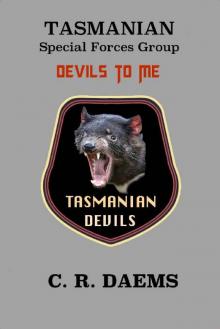 Tasmanian SFG, Book II: Devils to Me (Tasmanian series 2)
Tasmanian SFG, Book II: Devils to Me (Tasmanian series 2) The Red Admiral
The Red Admiral Tasmanian SFG: Welcome to Hell
Tasmanian SFG: Welcome to Hell Megan
Megan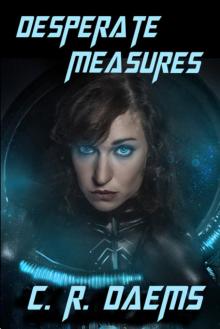 Desperate Measures: The Issog
Desperate Measures: The Issog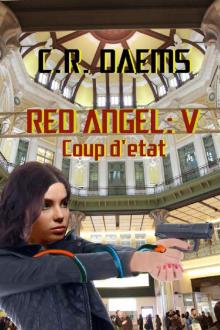 Red Angel: Coup d'etat (Red Angel Series Book 5)
Red Angel: Coup d'etat (Red Angel Series Book 5) The Shadow Ryana (The Shadow Sisters Book 1)
The Shadow Ryana (The Shadow Sisters Book 1) Riss Series 5: The Riss Challenge
Riss Series 5: The Riss Challenge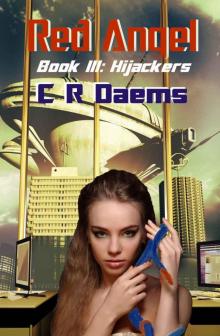 Red Angel: Book III: Hijackers
Red Angel: Book III: Hijackers The Riss Proposal: Book II in the Riss Series (Volume 2)
The Riss Proposal: Book II in the Riss Series (Volume 2) The Riss Enemies: Book VI (The Riss Series 6)
The Riss Enemies: Book VI (The Riss Series 6)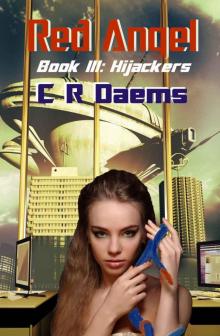 Hijackers
Hijackers The Shadow Gypsy (The Shadow Sisters)
The Shadow Gypsy (The Shadow Sisters)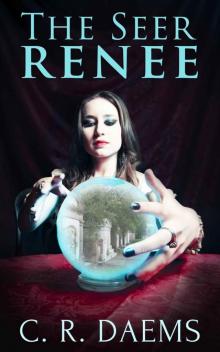 The Seer Renee
The Seer Renee Kazak Guardians: Book III: Megan (Kazak Guardians Series 3)
Kazak Guardians: Book III: Megan (Kazak Guardians Series 3)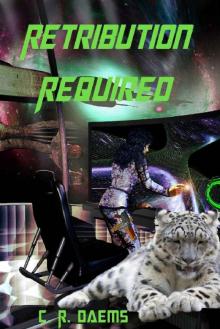 Retribution Required
Retribution Required Riss Series 3: The Riss Survival
Riss Series 3: The Riss Survival The Riss Gamble
The Riss Gamble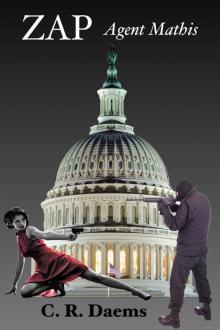 ZAP Agent Mathis
ZAP Agent Mathis The Black Guard: Book II: Evolution (Black Guard Series 2)
The Black Guard: Book II: Evolution (Black Guard Series 2)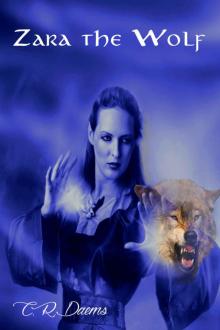 Zara the Wolf
Zara the Wolf C.R. Daems - Kazak 2 - The Unthinkable
C.R. Daems - Kazak 2 - The Unthinkable Guardians of Evil
Guardians of Evil Red Angel: Book II: Raiders (Red Angel Series 2)
Red Angel: Book II: Raiders (Red Angel Series 2) Talon of the Unnamed Goddess, a Fantasy Adventure
Talon of the Unnamed Goddess, a Fantasy Adventure Red Angel
Red Angel Women of Power
Women of Power Scales Of Justice
Scales Of Justice The Black Guard
The Black Guard